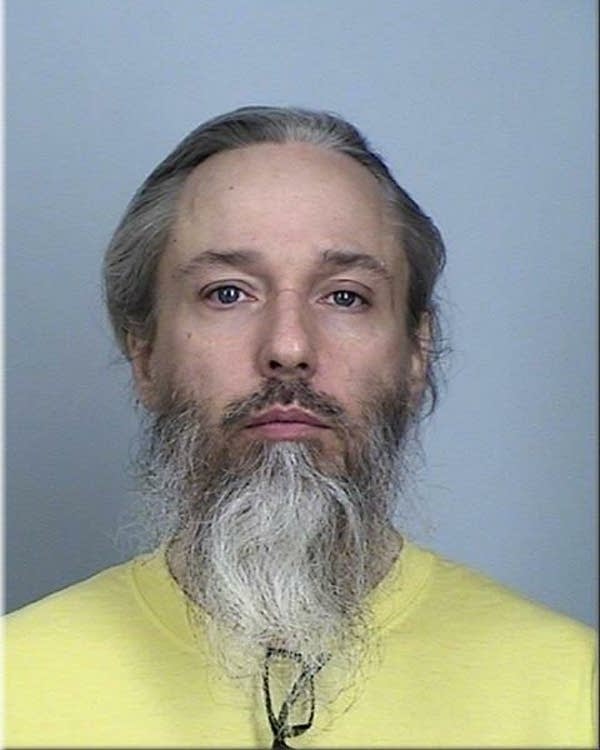Trial of alleged Twin Cities mosque bomber pushed back to April
Go Deeper.
Create an account or log in to save stories.
Like this?
Thanks for liking this story! We have added it to a list of your favorite stories.
A federal judge on Friday granted a nine-week delay in the trial of an Illinois man accused of bombing a suburban Twin Cities mosque.

Michael Hari, 48, faces federal hate crime and explosives charges in connection with the August 2017 attack on the Dar al-Farooq Islamic Center.
Federal prosecutors allege Hari was the ringleader of an Illinois-based anti-government militia and that he and two other men drove more than 500 miles to bomb the Bloomington mosque in hopes of scaring Muslims into leaving the United States.
The explosion and fire caused heavy damage to the imam’s office but no one was injured in the attack, which happened just as morning prayers were about to begin.
Turn Up Your Support
MPR News helps you turn down the noise and build shared understanding. Turn up your support for this public resource and keep trusted journalism accessible to all.
The two other men — Michael McWhorter, 31, and Joe Morris, 24 — pleaded guilty early last year and await sentencing.
Hari decided to challenge the government’s case at trial.
Jury selection had been set to start Feb. 20. But in court documents and at the hearing Friday, Hari’s attorney Shannon Elkins said she and co-counsel James Becker needed more time to prepare.
By law, prosecutors must hand over evidence to the defense ahead of trial. Elkins said since Christmas, the government has dumped nearly 14,000 pages of discovery on the defense, far more than the public defender’s office can comb through in less than two weeks.
She alleged that prosecutors have been holding material for months they should have handed over sooner, including DNA, fingerprint and explosives evidence presented by expert witnesses.
Prosecutors say the defense was exaggerating and that a number of expert reports had been disclosed a year ago.
Also at issue: Elkins said staff at an Illinois jail recorded a phone call between her and Hari and sent it to the FBI, which in turn, sent it to prosecutors — a violation of attorney-client privilege.
The government said no one on the trial team “had been exposed to any of the content of the calls.” A senior prosecutor is investigating. The two sides are expected to hash this out at a pretrial hearing in late March.

Court documents indicate McWhorter, one of the men who pleaded guilty in connection with the bombing, will testify that the group brought AR-15 rifles illegally modified to fire in full automatic firing mode on their trip from Illinois to Minnesota.
Prosecutors say there’ll also be testimony about plots that weren’t carried out.
Hari allegedly proposed attacking the Planned Parenthood location in St. Paul and discussed robbing a Bank of America branch on the way home because Hari associated the bank with financier George Soros.
Jury selection in Hari’s trial is now set to begin April 27.
Beyond the Dar al-Farooq case, Hari is also charged in Illinois federal court with other militia-related crimes, including the attempted bombing of a women’s clinic in Champaign, Ill., trying to extort money from a railroad by bombing the tracks, and planting explosives on the property of his neighbors.
The Illinois trial had been scheduled to start in late March, but will likely be delayed as well.


